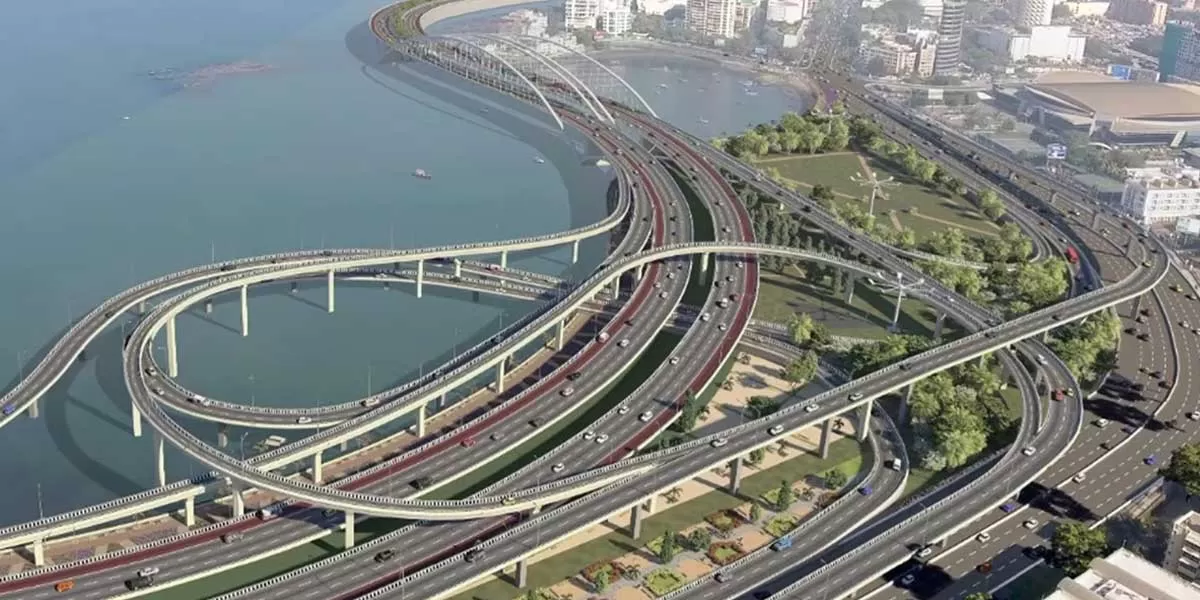Delhi, July 2024 – Leading infrastructure experts are set to gather in Delhi for the highly anticipated Infrastructure Today Conclave, scheduled on July 18-19, 2024. The event will bring together industry stalwarts, policymakers, and thought leaders to discuss the ambitious vision of 'Viksit Bharat' or Developed India by 2047, focusing on transforming India's infrastructure landscape to meet the nation's developmental goals.
Key Highlights:
Viksit Bharat Vision 2047: The conclave will underscore the government's commitment to transforming India into a $30-trillion economy by 2047, marking 100 years of independence. This vision aims to elevate India to the rank of the world's third-largest economy within the next five years, achieving a nominal GDP of $3.4 trillion and setting ambitious targets for infrastructure development across various sectors.
Economic and Infrastructure Growth: The roadmap includes boosting India's GDP to $6.69 trillion by 2030 and $29.02 trillion by 2047. Infrastructure investment is pivotal to this growth, with substantial emphasis on sectors such as railways, roads and highways, urban development, and renewable energy. The conclave will discuss the National Infrastructure Pipeline (NIP) as a cornerstone of these efforts, aiming to enhance connectivity, reduce logistics costs, and improve overall competitiveness.
Speakers (in alphabetic order):
AK Khandelwal, Member, Infrastructure, Indian Railways
Akshat Kumar, Tata Steel
Ankit Jain, CFO, Cube Highways
Ashish Kumar Singh, Chief General Manager, National Highway Authority of India
Athar Shahab, MD, Zuari Industries
Awanish Shukla, AGM, DLF
BR Parthasarthy, Sr VP & Infrastructure Cluster Head, Tata Consulting Engineers
Dinesh Jamwal, Head, Project Delivery, Noida International Airport
Dr. Sanjay Gambhir, Executive Director, AECOM
Dr Vasudevan, Head – Aviation, Travel & Tourism – India & APAC, ICF Consulting
Dhananjay Dhake, MD, Construction Catalysers
Hardik Agrawal, Director, Dineshchandra R Agrawal Infracon
Mangal Dev, Head, Hitachi Rail
Manish Agarwal, Head, Rail Infrastructure, Siemens Ltd
Muraleemohan M, COO, Maple Highways
Mridul Thottoli, Director – Partnerships, LivSYT
Prakash Gaur, CEO, National Highway Logistics & Management
Pramod Kasat, MD, Intellecap Advisory
Raman Kapil, President & COO, Urban Infrastructures, Tata Projects
Sanjiv Garg, Director General, CILT
Shailesh Pathak, Ex- Director Indian School of Public Policy & Former SG FICCI
Sharif Qamar, Associate Director, TERI
Shrinath Rao, IC Head & Sr VP, Transportation Infrastructure, L&T
Sudeep Srivastava, Executive Director, Ministry of Railways
Suneet Maheshwari, Partner, Udvik Infrastructure
Sunil Desai, MD, Dextra India
Sushim Banerjee, CEO, SAIL – Iron & Steel Sector Skill Council
S.V Desai, Director, L&T
U Subba Rao, GM, ICF
Uday Khare, Partner, Cyril Amarchand Mangaldas
UJM Rao, MD, AP Metro Rail
Vijay Agarwal, MD, Equirus Capital
Vikramjiet Roy, MD, Maccaferri
Vinayak Pai, MD, Tata Projects
Vinod Yadav, Director – Transport, NCC
Sustainability and Innovation: Participants will highlight the importance of integrating sustainability and advanced technologies into infrastructure projects. The focus on smart cities, green infrastructure, and efficient public transportation systems will be critical for achieving long-term development goals. The debate will also touch on innovative financing models and the role of public-private partnerships (PPPs) in accelerating project implementation.
Inclusive Development: The conclave will emphasize the need for inclusive development, ensuring that infrastructure growth benefits all segments of society. This includes addressing urban-rural disparities, improving financial inclusion, and promoting sustainable and ethical business practices. The role of chartered accountants in fostering good governance and compliance will also be discussed, with a call for enhancing financial literacy and supporting small and medium enterprises (SMEs).
Conclusion: The Infrastructure Today Conclave will serve as a crucial platform for stakeholders to share insights and strategies for building a developed India. The discussions will underscore the collective effort required to achieve these ambitious goals, with a focus on economic prosperity, social advancement, environmental sustainability, and effective governance. As India progresses towards its vision for 2047, the role of robust and innovative infrastructure development remains central to its success.Photo courtesy: Business Standard


















